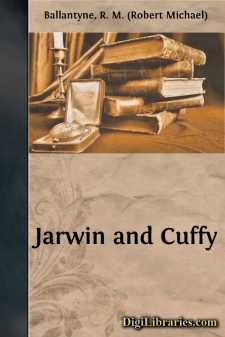Categories
- Antiques & Collectibles 13
- Architecture 36
- Art 48
- Bibles 22
- Biography & Autobiography 816
- Body, Mind & Spirit 145
- Business & Economics 28
- Children's Books 17
- Children's Fiction 14
- Computers 4
- Cooking 94
- Crafts & Hobbies 4
- Drama 346
- Education 58
- Family & Relationships 59
- Fiction 11834
- Foreign Language Study 3
- Games 19
- Gardening 17
- Health & Fitness 34
- History 1378
- House & Home 1
- Humor 147
- Juvenile Fiction 1873
- Juvenile Nonfiction 202
- Language Arts & Disciplines 89
- Law 16
- Literary Collections 686
- Literary Criticism 179
- Mathematics 13
- Medical 41
- Music 40
- Nature 179
- Non-Classifiable 1768
- Performing Arts 7
- Periodicals 1453
- Philosophy 66
- Photography 2
- Poetry 897
- Political Science 203
- Psychology 45
- Reference 154
- Religion 516
- Science 126
- Self-Help 85
- Social Science 82
- Sports & Recreation 34
- Study Aids 3
- Technology & Engineering 59
- Transportation 23
- Travel 463
- True Crime 29
Our website is made possible by displaying online advertisements to our visitors.
Please consider supporting us by disabling your ad blocker.
The Hot Swamp
Categories:
Description:
Excerpt
A Romance of Old Albion.
Opens with Leave-Taking.
Nearly two thousand seven hundred years ago—or somewhere about eight hundred years B.C.—there dwelt a Phoenician sea-captain in one of the eastern sea-ports of Greece—known at that period, or soon after, as Hellas.
This captain was solid, square, bronzed, bluff, and resolute, as all sea-captains are—or ought to be—whether ancient or modern. He owned, as well as commanded, one of those curious vessels with one mast and a mighty square-sail, fifty oars or so, double-banked, a dragon’s tail in the stern and a horse’s head at the prow, in which the Phoenicians of old and other mariners were wont to drive an extensive and lucrative trade in the Mediterranean; sometimes pushing their adventurous keels beyond the Pillars of Hercules, visiting the distant Cassiterides or Tin Isles, and Albion, and even penetrating northward into the Baltic, in search of tin, amber, gold, and what not.
One morning this captain, whose name was Arkal, sauntered up from the harbour to his hut, which stood on a conspicuous eminence overlooking the bay. His hands were not thrust into his pockets, because he had no pockets to put them into—the simple tunic of the period being destitute of such appendages. Indeed, the coarse linen tunic referred to constituted the chief part of his costume, the only other portions being a pair of rude shoes on his feet, a red fez or tarbouche on his bushy brown locks, and yards of something wound round his lower limbs to protect them from thorns on shore, as well as from the rasping of cordage and cargo at sea.
At the door of his hut stood his pretty little Greek wife, with a solid, square, bluff, and resolute, but not yet bronzed, baby in her arms.
“Well, Penelope, I’m off,” said the captain. At least he used words to that effect, as he enveloped wife and baby in a huge embrace.
Of course he spoke in a dialect of ancient Greek, of which we render a free translation.
The leave-taking was of the briefest, for just then a loud halloo from his mate, or second in command, apprised the captain that all was ready to set sail. But neither Penelope nor her husband were anxious souls or addicted to the melting mood. The square baby was rather more given to such conditions. In emulation of the mate it set up a sudden howl which sent its father away laughing to the harbour.
“No sign of the young men,” remarked the mate, as his superior came within hail.
“It is ever the way with these half-fledged boys who think themselves men while their faces are yet hairless,” growled the captain, casting a glance at his unfailing chronometer, the rising sun. “They have no more regard for the movements of that ball of fire than if it was set in the sky merely to shine and keep them warm, and had no reference whatever to time. If this youth from Albion does not appear soon, I shall set sail without him, prince though he be, and leave him to try his hand at swimming to the Cassiterides. His comrade and friend, Dromas, assured me they would not keep us waiting; but he is no better than the rest of them—a shouting, singing, smooth-faced, six-foot set they are, who think they inherit the combined wisdom of all their grandfathers but none of their weaknesses; reckless fear-nothings, fit only for war and the Olympic games!”
“Nevertheless, we could not do well without them,” returned the mate, glancing significantly at the ship’s crew, a large proportion of which was composed of these same stalwart fear-nothings of whom his leader spoke so contemptuously; “at least they would make a fine show at these games, and our ventures at sea would not prosper so well if we had not such to help us.”
“True, true, and I would not speak slightingly of them, but they do try one’s patience; here is the wind failing, and we all ready to hoist sail,” returned the captain with another growl, a glance at the sky, and a frown at his vessel, everything about which betokened readiness for instant departure....












